The Tragic Story Of Laura Kowal
A Romance Scam Victim Who Died Possibly At The Hands Of The Ghana Scammers Who Controlled Here!
A Not Uncommon Case of a Romance Scam Victim Who loses Everything and then becomes a Money Mule for Ghana Scammers
Authors:
• SCARS Editorial Team – Society of Citizens Against Relationship Scams Inc.
• Portions CBS News and other sources
About This Article
Laura Kowal’s tragic story sheds light on the devastating impact of romance scams, where victims like her become enslaved by expert criminals, leading to dire consequences. Laura, a widow seeking companionship, fell victim to a scam orchestrated by individuals masquerading as her online lover, ‘Frank Borg.’
Despite initial feelings of romance and excitement, Laura eventually became a money mule for Ghana scammers, after ultimately losing $1.5 million.
Mysteriously, she was found drowned in a river, raising suspicions of foul play. Her daughter, Kelly Gowe, tirelessly seeks answers, highlighting the manipulative tactics and devastating consequences of romance scams.
The story underscores the urgent need for greater awareness, support for victims, and accountability for perpetrators, as countless lives continue to be shattered by these deceitful schemes.

A Note About Labeling!
We often use the term ‘scam victim’ in our articles, but this is a convenience to help those searching for information in search engines like Google. It is just a convenience and has no deeper meaning. If you have come through such an experience, YOU are a Survivor! It was not your fault. You are not alone! Axios!
This is the Tragic Story of a Romance Scam Victim Laura Kowal Who Died Under Mysterious Circumstances during her Scam – Possibly at the hands of the Ghana or Nigerian Scammers Who were Controlling Her!
In Memmoriam of Laura Kowal
SCARS Note: Our deepest sympathy to the family of Laura Kowal. Sadly she was one of the millions of other scam victims that become psychologically enslaved by these crimes and expert organized criminals each year. It was not her fault. Unfortunately, she was also one of the 20 or more each day who take or lose their lives because of these horrible crimes. We hope that this article will bring additional attention on the case, that it does not cause Laura’s family any further pain, and that we can help apply resources to help find answers.
Her Story
Laura Kowal who has been confirmed to have been both a romance scam victim and converted into a money mule for the Ghana Scammers who were controlling her, mysteriously drowned in the river after giving $1.5m to her Match.com scammers
- Laura Kowal, 57, drowned after being scammed initially by a fake online profile named ‘Frank Borg.’
- Borg’s photos belonged to a Chilean doctor and his emails were traced to Ghana.
- Laura Kowal, who was a widow, was found deceased hundreds of miles from her home after losing $1.5 million to a man she met on a dating app.
According to CBS News:
When Laura Kowal decided to date again after losing her husband of 24 years, the 57-year-old retired hospital executive from Galena, Illinois, joined an online dating site because that felt safer.
The relationship she forged with a self-described Swedish investment adviser named Frank Borg began with florid emails and giddy phone calls in October 2018. It was romantic and exciting — but it soon became more furtive.
On August 7, 2020, Kowal’s daughter, Kelly Gowe, received a voicemail from a federal investigator informing her that her mother “may have been involved in a fraud scam” as a victim.
The events that followed not only ended in tragedy for Kowal, they would transform the life of her daughter. Gowe still grapples with all that transpired after receiving that phone call, but she has launched herself at a new cause: to demystify romance scams, a crime that has victimized tens of thousands, many too ashamed to report it.
More to the Story
Laura Kowal, who was 57 at the time of her death by unknown circumstances, had been in an online relationship with a man named ‘Frank Borg,’ whom she met on Match.com. The ‘relationship’ had gone on for over a year when she was found in the Mississippi River in August 2020.
Her daughter, Kelly Gowe, got a call from a federal agent telling her that her mom had been scammed, and when she tried to call her mom, she found out she was missing.
While searching for clues, Gowe found records showing Kowal had sent Borg – who was using a fake name – $1.5 million and a heartbreaking note.
‘I’ve been living a double life this past year. It has left me broke and broken. Yes, it involves Frank, the man I met through online dating. I tried to stop this, many times, but I knew I would end up dead,’ Kowal wrote her daughter.
Since the Ghana/Nigerian criminals had partners in the U.S. – some of whom have been arrested (see below,) it is easy to speculate that Laura may have been harmed by the crime gang’s members living in the United States.
The Disappearance
CBS News said that when local police began investigating Kowal’s disappearance, their missing person alert identified her as being suicidal. It was a misunderstanding, Gowe says, forged in the panicked first hours after her mother had vanished.
In fact, Gowe had begun to find evidence that her mother’s “relationship” with “Frank” had morphed over time. Hundreds of emails show how “Frank” manipulated her, coaxing her into wiring funds to a fake company called Goose Investments. In total, she sent $1.5 million.
Initially, their emails had all the language of love. Him telling her he would “never stop loving you.” Her replying: “This is love! Blind trust! Yes, I am the woman who is trusting you.”
But over time, according to CBS News, their emails lose the sheen of romance and become more transactional. “Frank” sends emotionless instructions for Kowal to make fake dating profiles on apps like Match.com and Christian Mingle, to open multiple new bank accounts, set up false companies, and eventually, as her savings dwindled, to mortgage her home.
As the nearly two-year relationship went on, Kowal started to express skepticism. In one exchange in May 2019, she emailed him saying she was “struggling.”
“You, and these strangers, are clearly finding out more about me than I know about you through this process,” she wrote, her suspicion rising.
“This is not uncommon, since these crimes work on both the criminal level but also as a manipulative controlling relationship and many victims first begin to respond to the controlling relationship long before they understand that it was all ies and a scam” according to Dr. Tim McGuinness of SCARS
The longer the scheme went on, Gowe found that the trail became confusing, with more and more conversations taken offline. She believes her mother began receiving threats, she told CBS News:
“I believe there were threats behind it, or maybe this was her way of recouping the money that she had given them,” Gowe says. “It just really saddens me that it got to that point that ultimately she was participating in illegal behaviors, right? And I believe that she was doing that because she felt like she had to. There was no other choice.”
Law enforcement has been unable to determine if Kowal was in contact with someone during her drive. They found packaging for a burner phone in her home, but no actual phone. Her Honda Pilot was not a recent enough model to allow them to re-trace her driving through an on-board computer. Her last cellphone ping was near the river crossing in Sabula, Iowa, 40 minutes south – which must mean he ran out of battery (unlikely in her car) or that she turned off her phone.
Gowe and her mother’s close friends have sought answers themselves, re-tracing her mother’s likely driving route, collecting surveillance images from that day on the chance of finding evidence Kowal was not alone. So far, she has pursued many leads but found few answers.
Finding Her in the Mississippi River
On Aug. 9, 2020, according to CBS News, a Missouri State Police marine accident team responded to a report of a body floating in the Mississippi River near Canton, Missouri, hundreds of miles from Galena. Sadly it turned out to be Laura Kowal – she had been found.
Hours later, Kowal’s car was discovered on a boat ramp in a hardscrabble river town in Southern Illinois, more than three hours south of Galena. Police found no glaring sign of foul play. But neither did they rule it a suicide.
Lewis County Missouri Sheriff David Parrish told CBS News that investigators at the scene sought to determine, “Did something happen here? Is this more than just a recovery? And based on the investigation we did at the time, primarily through the Marine Division of the Highway Patrol, it appeared that it was a recovery.”
A forensic review of Kowal’s phone shows that it was turned off in the hours before her death. Her last text message to her friend Kathy was, “All is good.”
An autopsy proved inconclusive, ruling Kowal’s death to be from drowning, but giving no further indication about how she wound up in the water. Police, Gowe said, made a snap assumption that her mother died by suicide. And of course, that closed the case.
Since her mother was found, Gowe has been troubled by the contradictions of the case.
- Who was she speaking with on the phone as she left home?
- How did her car wind up parked on a boat ramp hundreds of miles away?
- Why, if she took her life, would she do it in a manner that would make it unlikely she would ever be found?
- And what of the cryptic note — not left on the counter but buried in a drawer — predicting she would wind up dead?
“I have never been ashamed if [a finding of suicide] was the outcome,” Gowe said. “And it’s not because I don’t want to believe that. There would be some closure that would come if we were able to prove that my mom committed suicide. … But do I believe that they have been proactively seeking out evidence in an investigation beyond suicide? No.”
‘It’s the scammers, It’s the criminals behind those emails. It’s Frank Borg… this character. He killed my mom,’ Gowe said.
‘And everyone that is involved in this scam in any capacity, that’s moving the money, that’s making a phone call, that’s hitting “enter” and “send” on an email — they’re all responsible for my mom’s death.’
This is accurate, according to SCARS, all participants in the crime may be charged with ‘felony murder’ if it turns out that Laura Kowal’s death was either suicide or manslaughter/murder.
The Scam
Emails shared with CBS News showed that within weeks of meeting virtually in 2018, Kowal and Borg were professing their love in emails despite never meeting in person and he persuaded her to send him money.
Federal agents found that Borg’s pictures belonged to a Chilean doctor and his emails were from Ghana.
According to a Gallup research study in 2023, nearly 21 million people are being scammed each year in the United States alone. Unfortunately, the percentage of victims who report these crimes is about 3% – which means that the actual numbers are about 35x times what the government reports.
‘Digital tools are making it easier than ever to target hard-working Americans, and we see the effects of that in the data,’ said Samuel Levine, Director of the FTC’s Bureau of Consumer Protection.
‘We really need help,’ said Paul Benda, the executive vice president for risk, fraud and cybersecurity at the American Bankers Association told CBS News.
‘We need social media companies to shut down these people that are putting these out there. We need law enforcement engaged to try and prosecute some of these folks. Unless you put a bad guy behind bars, that guy is gonna keep doing what he’s doing.’ But social media companies have no incentive to doing anything serious since they are protected from liability by the Communications Decency Action Section 230 of 1996.
Investigators have been unable to verify the real identity of “Frank” — only that the photos used were stolen from the social media profile of a doctor in Chile, and that the emails actually originated in Ghana.
Match Group said it removed the fraudulent account immediately once it was notified by federal law enforcement, but would not say how long the profile was up on their site, or how many others matched with Frank.
Last year, Gowe left her job and has dedicated herself to share her mother’s story as a cautionary tale and advocate for victims. Earlier this year she spoke to a women’s group in Iowa, urging financial institutions and law enforcement to do more to protect victims.
“I would not be doing her justice,” Gowe said, “if I wasn’t sharing this case and her story to help other victims, and to educate people so that nobody else falls victim to the crime of romance scamming.”
According to CBS News:
In 2018, she joined Match.com. She chose to meet someone online, just as 3 in 10 Americans have, because she told her daughter it felt safer than meeting someone out at a bar.
Enter “Frank Borg,” a self-described businessman who claimed he was born in Sweden but with roots in the U.S., with whom she connected on the dating site. Frank’s photo showed a trim man in the outdoors, with an angular face and salty hair, mature and fit. He claimed family ties to Iowa, just like Kowal; the loss of a spouse, just like Kowal; and a single adult child, just like Kowal. After a few days on the site, the pair exchanged emails.
“I’m also new to this online dating thing,” he told Laura in his first email to her. “I am an honest and caring person who is very loyal to those I care about.”
The following day they exchanged numbers.
“I hope we can always talk on [sic] phone and cherish each other [sic] voice,” he wrote to her.
Over the next 10 days they exchanged stories and Kowal began opening up to him.
“Trusting you blindly here. Trust is really big for me,” Kowal wrote.
In total it took 12 days to get from that first email to Kowal returning his affections.
“My heart is ready for you!” she wrote, signing off, “Love you, Frank! Your [sic] in my heart forever!”
“Clearly, my mom felt the emotions of feeling loved,” Gowe said to CBS News. “And I know there’s a lot of people out there saying, ‘Well, how could that happen?’ It could happen to anybody.”
The Response from Match.com
Match CEO Bernard Kim sparked outrage, according to the Daily Mail, with his callous response to the shocking rise in romance scams – after Laura Kowal was conned out of $1.5M by a man on his dating site: ‘Things happen’
Match Group told CBS News that it “believes the FTC allegations have no merit.” But that allegation, online security experts say, pulls back a curtain on an intractable challenge that has confronted not only Match Group, but social media and online dating apps across the country: How to maintain an open environment that is easy for people to join, while at the same time imposing screening software that blocks technically sophisticated overseas scammers.
“It’s existential to our business to remain safe,” Match Group CEO Bernard Kim told CBS News.
Unfortunately, like with social media platforms, Match.com gets away with this because of the Communications Decency Action section 230 which gives them immunity too.
U.S.
As romance scammers turn dating apps into “hunting grounds,” critics look to Match Group to do more
By Jim Axelrod, Sheena Samu, Andy Bast, Matthew Mosk
April 24, 2024 / 9:12 AM EDT / CBS News
When the Federal Trade Commission began investigating problems related to romance scams five years ago, the consumer watchdog agency’s analysts gained access to internal data from one of the biggest players in the online dating space — Match.com.
“It was incredibly troubling,” a former FTC analyst told CBS News, speaking on the condition of anonymity because portions of the case are still pending.
The agency’s findings made their way into the government’s 2019 lawsuit against the website’s parent company, Match Group. “Between 2013 and at least mid-2018,” the lawsuit alleged, “consumers who were considering purchasing a Match.com subscription were generally not aware that as many as 25-30 percent of Match.com members who registered each day were using Match.com to perpetrate scams.”
Match Group told CBS News that it “believes the FTC allegations have no merit.” But that allegation, online security experts say, pulls back a curtain on an intractable challenge that has confronted not only Match Group, but social media and online dating apps across the country: How to maintain an open environment that is easy for people to join, while at the same time imposing screening software that blocks technically sophisticated overseas scammers.
“It’s existential to our business to remain safe,” Match Group CEO Bernard Kim told CBS News.
The company says it has made significant strides in keeping scammers off its site. In response to questions from CBS News, Match Group touted “continuous investments — to prevent, monitor and remove bad actors who have violated our terms.” They include both automated and manual scans for red-flag language and images and suspicious profiles, efforts it says remove 96% of “potentially improper accounts” within a day. Match told CBS News it consistently spends $125 million each year on trust and safety, and the team has grown by 30% in the past year.
SCARS Note: SCARS recommends that all potential online daters avoid all Match.com websites due to the risks to victims and dating safety.
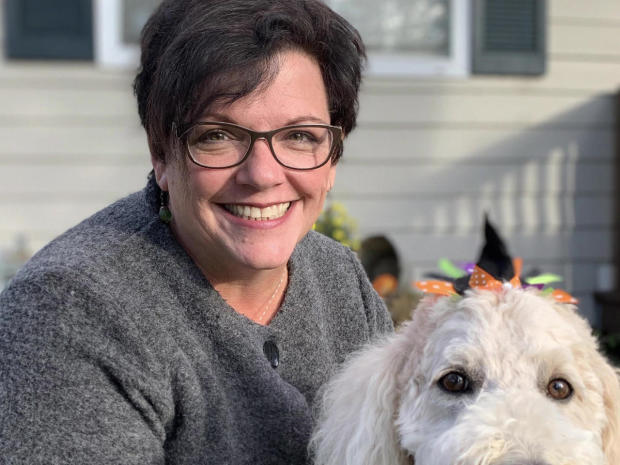
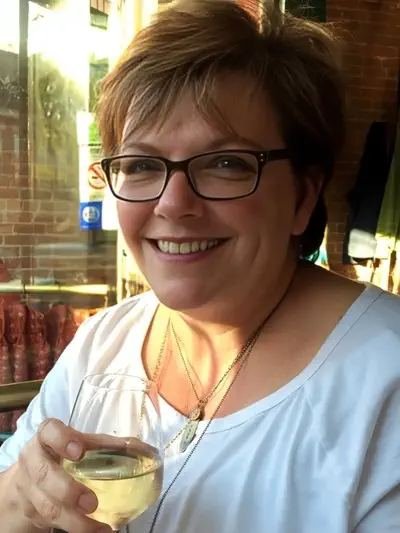
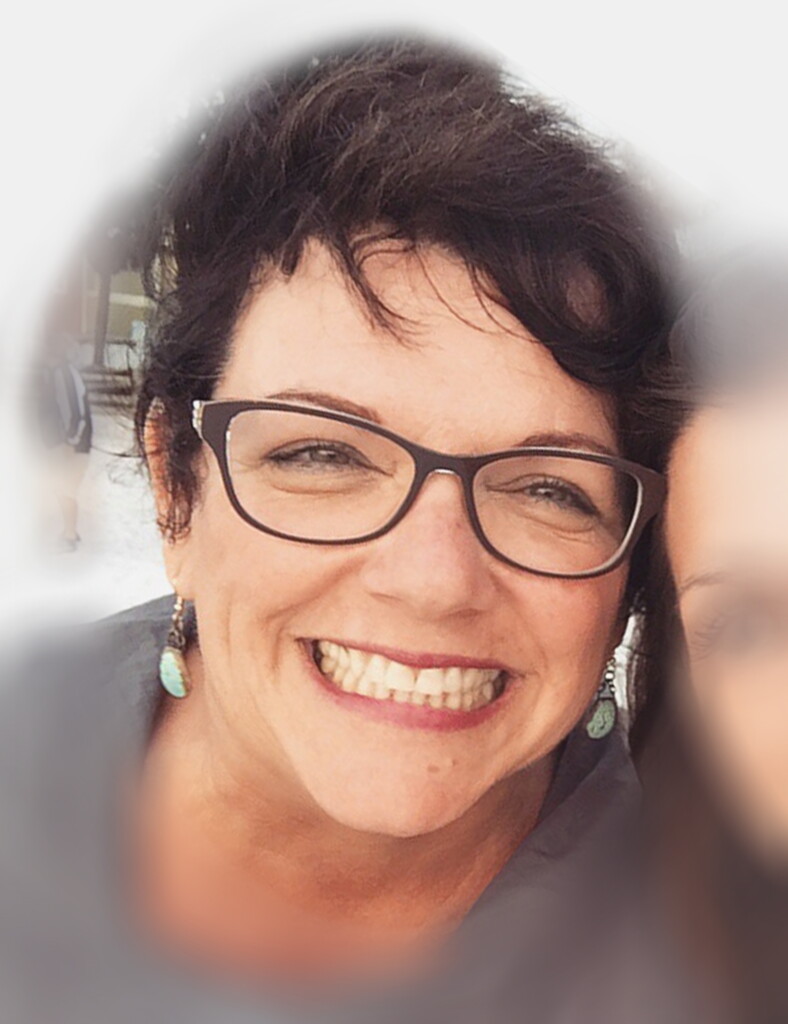
Laura A. Kowal
August 29, 1962 – August 9, 2020
About Laura Kowal
According to her obituary, Kowal loved taking care of her gardens, playing golf, and volunteering with her therapy dog Effie at a nursing home.
“She had all these buckets full in her life, my mom did,” said Kelly Gowe, Laura’s daughter. “But there was this one bucket that was missing… and that was companionship. … And that’s ultimately where we’re at now, is because of that.”
“It wasn’t until I learned that I was going to have a daughter of my own that I knew that one day she would know the full story,” Gowe told CBS News. “But I want her to know that her grandmother’s story has the ability to educate people and to promote change, and ultimately her grandmother’s story can save someone’s life.”
Her Obituary
Laura A. Kowal was born August 29, 1962, in Iowa City, Iowa, to Richard and Mary Constance (nee Anderson) Broulik. She died August 9, 2020, in Lewis County, Missouri. Laura was a 1985 graduate of Coe College in Cedar Rapids, Iowa, with a B.A. in Business Administration. Laura had a very successful career in the healthcare industry having management and director roles with Unity Point in Dubuque, Iowa, Advocate Sherman Hospital in Elgin, Illinois, and Northwest Community Hospital in Arlington Heights, Illinois. Laura retired from her healthcare career in 2017 to spend time fully enjoying her property in Galena, tending to her beautiful flower and vegetable gardens, participating in local golf leagues, volunteering through therapy dog work with her beloved golden doodle “Effie” at the Elizabeth Nursing Home in Elizabeth, Illinois, working part-time at River Bend Gallery and Carlotta’s in downtown Galena, and enjoying time with family and friends – both locally in Galena and traveling to visit those afar. Laura will be remembered for her contagious smile and laugh, loving heart and constant willingness to help and support others.
Laura is survived by her daughter, Kelly Kowal; her siblings, William (Barb) Broulik, Dale (Brenda) Broulik, Susan (Daryl) Spivey, Mark Broulik, Stephen (Brenda) Broulik and Wesley (Mandy) Broulik; her mother-in-law Marjorie Kowal; her sisters-in-law, Peggy (Doug) Fisher, Mary Kay (Mick) Callaghan, Carol (Dale) Costantino and Nancy Mikeworth (Jack Springmire); and by many nieces and nephews.
Laura is preceded in death by her husband, William Kowal; her father, Richard Broulik; her mother Mary Constance (nee Anderson) Broulik; and her father-in-law, Richard Kowal.
Family and friends are invited to gather and honor Laura’s life from 8:30 a.m. – 12:30 p.m. on Saturday, August 22, 2020, at Stewart Baxter Funeral & Memorial Services, Mount Vernon, Iowa. Face masks and social distancing will be required. Private graveside Catholic services will be held at Rose Hill Cemetery, Mechanicsville, Iowa.
Photos courtesy of CBS News or Laura Kowal’s Family
The Fake Frank Borg
Some Justice
Three Chicago-Area Residents Charged with Conducting Online Romance Fraud and Other Schemes – two of these are believed to be directly connected to Laura Kowal
According to the United States Attorney on Tuesday, July 21, 2020
An undercover federal law enforcement investigation has identified a variety of cyber-enabled fraud conspiracies allegedly carried out by two Nigerian nationals and a U.S. citizen residing in the Chicago suburbs.
One of the alleged schemes involved “romance scams,” in which a conspirator builds trust with a victim through a purported online romance before convincing the victim to send money to a predetermined recipient. The conspirators allegedly communicated with victims throughout the United States via social media and dating websites, including Match.com and OKCupid.com. The charges allege that the conspirators also engaged in other cyber-enabled frauds, including a “business email compromise” scheme and an inheritance fraud. The alleged scams resulted in a loss to victims of at least $750,000, the complaint states.
Charged with conspiracy to commit wire fraud are SAMUEL ANIUKWU, 46, a Nigerian national residing in Romeoville; ANTHONY EMEKA IBEKIE, 55, a Nigerian national residing in Oswego; and JENNIFER GOSHA, 48, a U.S. citizen residing in Oak Park. All three defendants were arrested last week. Aniukwu is scheduled to appear for a detention hearing today at 2:30 p.m. before U.S. Magistrate Judge Susan E. Cox. Ibekie is scheduled to appear for a detention hearing before Judge Cox on July 24, 2020, at 9:30 a.m. Gosha has been released on bond.
The charges were announced by John R. Lausch, Jr., United States Attorney for the Northern District of Illinois; James M. Gibbons, Special Agent-in-Charge of the U.S. Immigration and Customs Enforcement’s Homeland Security Investigations in Chicago; William Hedrick, Inspector-in-Charge of the U.S. Postal Inspection Service in Chicago; Kathy A. Enstrom, Special Agent-in-Charge of the IRS Criminal Investigation Division in Chicago; and Robert Berlin, DuPage County State’s Attorney. Assistant U.S. Attorneys Saurish Appleby-Bhattacharjee and Paige Nutini represent the government.
In the business email compromise scheme, the conspirators allegedly defrauded victims by targeting corporate email accounts via computer intrusion techniques, the complaint states. Correspondence to those email accounts were blocked while the conspirators used them to communicate with unsuspecting victims in an attempt to induce fraudulent wire transfers. In the inheritance fraud scam, the conspirators fraudulently told victims that they had received a substantial inheritance and needed to send money to the conspirators in order to claim it, the complaint states.
The charges allege that the defendants created fictitious business entities and opened numerous bank accounts in those entities’ names in order to launder proceeds from the fraud schemes. During a court-authorized search last week of Aniukwu’s residence, law enforcement seized multiple digital devices, including a cellphone that contained letters purported to be from “Standard Charter Financial Group,” according to the government’s memorandum in support of Aniukwu’s detention. The letters were addressed to victims regarding processing of the bogus inheritance payments, the memorandum states.
The charge in the complaint carries a maximum sentence of 20 years in prison. If convicted, the Court must impose reasonable sentences under federal sentencing statutes and the advisory U.S. Sentencing Guidelines.
No further information is available on the cases of the three that we could find.
An interesting side note. The Chicago three are Nigerians. This might indicate the involvement of Nigerians from the beginning – such as the Black Axe organization that operates inside the United States too.
Criminal Complaint
PDF – Criminal Complaint – UNITED STATES OF AMERICA v. SAMUEL UCHENNA ANIUKWU, also known as “Uchenna Samuel Aniukwu” and “Sammy Maxwell”; ANTHONY EMEKA IBEKIE, also known as “Emeka Toni Ibe”; and JENNIFER GOSHA
CBS News Investigation Videos
SCARS Note: These videos certainly bring the case to light, but the reporting is significantly exploitative and heavy on victim blaming. They did not bother to speak with experts in scam victim psychology about these crimes. They failed to properly point out how strong the manipulation and control were and more importantly how innocent the victim was. As a result, it clearly paints a picture of guilt when none should be assumed. SCARS has reached out to CBS News and hopes to help them better represent the reality of what the victims of these crimes face while under the control of the criminals.
Trigger Warning: Victim Viewing Discretion Is Advised
More Related Information About the Laura Kowal Case:
- Romance scammers turn victims into “money mules,” creating a legal minefield for investigators – CBS News
- As romance scammers turn dating apps into “hunting grounds,” critics look to Match Group to do more – CBS News
- In one woman’s mysterious drowning, signs of a national romance scam epidemic – CBS News
- How ordinary people get duped into becoming “money mules” – CBS News
- Three from suburbs collected $750K in romance, inheritance scams, federal authorities say – Chicago Tribune
- Three Chicago-Area Residents Charged With Conducting Online Romance Fraud and Other Schemes (justice.gov)
- Chicago-area trio charged with running online romance fraud, other schemes | ICE
- CDA Section 230 – Why Facebook & Social Media Largely Ignore Scammers (romancescamsnow.com)
-/ 30 /-
What do you think about this?
Please share your thoughts in a comment below!
Statement About Victim Blaming
SCARS Institute articles examine different aspects of the scam victim experience, as well as those who may have been secondary victims. This work focuses on understanding victimization through the science of victimology, including common psychological and behavioral responses. The purpose is to help victims and survivors understand why these crimes occurred, reduce shame and self-blame, strengthen recovery programs and victim opportunities, and lower the risk of future victimization.
At times, these discussions may sound uncomfortable, overwhelming, or may be mistaken for blame. They are not. Scam victims are never blamed. Our goal is to explain the mechanisms of deception and the human responses that scammers exploit, and the processes that occur after the scam ends, so victims can better understand what happened to them and why it felt convincing at the time, and what the path looks like going forward.
Articles that address the psychology, neurology, physiology, and other characteristics of scams and the victim experience recognize that all people share cognitive and emotional traits that can be manipulated under the right conditions. These characteristics are not flaws. They are normal human functions that criminals deliberately exploit. Victims typically have little awareness of these mechanisms while a scam is unfolding and a very limited ability to control them. Awareness often comes only after the harm has occurred.
By explaining these processes, these articles help victims make sense of their experiences, understand common post-scam reactions, and identify ways to protect themselves moving forward. This knowledge supports recovery by replacing confusion and self-blame with clarity, context, and self-compassion.
Additional educational material on these topics is available at ScamPsychology.org – ScamsNOW.com and other SCARS Institute websites.
-/ 30 /-
What do you think about this?
Please share your thoughts in a comment below!
SCARS LINKS: AgainstScams.org RomanceScamsNOW.com ContraEstafas.org ScammerPhotos.com Anyscam.com ScamsNOW.com
reporting.AgainstScams.org support.AgainstScams.org membership.AgainstScams.org donate.AgainstScams.org shop.AgainstScams.org
youtube.AgainstScams.org linkedin.AgainstScams.org facebook.AgainstScams.org
2 Comments
Leave A Comment
Important Information for New Scam Victims
- Please visit www.ScamVictimsSupport.org – a SCARS Website for New Scam Victims & Sextortion Victims.
- SCARS Institute now offers its free, safe, and private Scam Survivor’s Support Community at www.SCARScommunity.org – this is not on a social media platform, it is our own safe & secure platform created by the SCARS Institute especially for scam victims & survivors.
- SCARS Institute now offers a free recovery learning program at www.SCARSeducation.org.
- Please visit www.ScamPsychology.org – to more fully understand the psychological concepts involved in scams and scam victim recovery.
If you are looking for local trauma counselors, please visit counseling.AgainstScams.org
If you need to speak with someone now, you can dial 988 or find phone numbers for crisis hotlines all around the world here: www.opencounseling.com/suicide-hotlines
Statement About Victim Blaming
Some of our articles discuss various aspects of victims. This is both about better understanding victims (the science of victimology) and their behaviors and psychology. This helps us to educate victims/survivors about why these crimes happened and not to blame themselves, better develop recovery programs, and help victims avoid scams in the future. At times, this may sound like blaming the victim, but it does not blame scam victims; we are simply explaining the hows and whys of the experience victims have.
These articles, about the Psychology of Scams or Victim Psychology – meaning that all humans have psychological or cognitive characteristics in common that can either be exploited or work against us – help us all to understand the unique challenges victims face before, during, and after scams, fraud, or cybercrimes. These sometimes talk about some of the vulnerabilities the scammers exploit. Victims rarely have control of them or are even aware of them, until something like a scam happens, and then they can learn how their mind works and how to overcome these mechanisms.
Articles like these help victims and others understand these processes and how to help prevent them from being exploited again or to help them recover more easily by understanding their post-scam behaviors. Learn more about the Psychology of Scams at www.ScamPsychology.org
SCARS INSTITUTE RESOURCES:
If You Have Been Victimized By A Scam Or Cybercrime
♦ If you are a victim of scams, go to www.ScamVictimsSupport.org for real knowledge and help
♦ SCARS Institute now offers its free, safe, and private Scam Survivor’s Support Community at www.SCARScommunity.org/register – this is not on a social media platform, it is our own safe & secure platform created by the SCARS Institute especially for scam victims & survivors.
♦ Enroll in SCARS Scam Survivor’s School now at www.SCARSeducation.org
♦ To report criminals, visit https://reporting.AgainstScams.org – we will NEVER give your data to money recovery companies like some do!
♦ Follow us and find our podcasts, webinars, and helpful videos on YouTube: https://www.youtube.com/@RomancescamsNowcom
♦ Learn about the Psychology of Scams at www.ScamPsychology.org
♦ Dig deeper into the reality of scams, fraud, and cybercrime at www.ScamsNOW.com and www.RomanceScamsNOW.com
♦ Scam Survivor’s Stories: www.ScamSurvivorStories.org
♦ For Scam Victim Advocates visit www.ScamVictimsAdvocates.org
♦ See more scammer photos on www.ScammerPhotos.com
You can also find the SCARS Institute’s knowledge and information on Facebook, Instagram, X, LinkedIn, and TruthSocial
Psychology Disclaimer:
All articles about psychology and the human brain on this website are for information & education only
The information provided in this and other SCARS articles are intended for educational and self-help purposes only and should not be construed as a substitute for professional therapy or counseling.
Note about Mindfulness: Mindfulness practices have the potential to create psychological distress for some individuals. Please consult a mental health professional or experienced meditation instructor for guidance should you encounter difficulties.
While any self-help techniques outlined herein may be beneficial for scam victims seeking to recover from their experience and move towards recovery, it is important to consult with a qualified mental health professional before initiating any course of action. Each individual’s experience and needs are unique, and what works for one person may not be suitable for another.
Additionally, any approach may not be appropriate for individuals with certain pre-existing mental health conditions or trauma histories. It is advisable to seek guidance from a licensed therapist or counselor who can provide personalized support, guidance, and treatment tailored to your specific needs.
If you are experiencing significant distress or emotional difficulties related to a scam or other traumatic event, please consult your doctor or mental health provider for appropriate care and support.
Also read our SCARS Institute Statement about Professional Care for Scam Victims – click here
If you are in crisis, feeling desperate, or in despair, please call 988 or your local crisis hotline – international numbers here.
More ScamsNOW.com Articles
A Question of Trust
At the SCARS Institute, we invite you to do your own research on the topics we speak about and publish. Our team investigates the subject being discussed, especially when it comes to understanding the scam victims-survivors’ experience. You can do Google searches, but in many cases, you will have to wade through scientific papers and studies. However, remember that biases and perspectives matter and influence the outcome. Regardless, we encourage you to explore these topics as thoroughly as you can for your own awareness.


![The Tragic Story Of Laura Kowal - A Romance Scam Victim Who Died Possibly At The Hands Of The Ghana/Nigerian Scammers - 2024 - [Videos] 1 Scam Victim Resistance In Support Groups Therapy Or Counseling Can Destroy Opportunities For Recovery - 2024 - on SCARS ScamsNOW.com](https://scamsnow.com/wp-content/uploads/2024/04/angry-2191104_12801-1024x640.jpg)
![The Tragic Story Of Laura Kowal - A Romance Scam Victim Who Died Possibly At The Hands Of The Ghana/Nigerian Scammers - 2024 - [Videos] 2 Psychological Trauma Or PTSD And Chronic Headaches And Migraines - 2024 - on SCARS ScamsNOW.com](https://scamsnow.com/wp-content/uploads/2024/04/Insight-Hospital-_-Blog-When-a-Headache-is-Serious-896115300-1080x6751-1-1024x640.jpg)
![The Tragic Story Of Laura Kowal - A Romance Scam Victim Who Died Possibly At The Hands Of The Ghana/Nigerian Scammers - 2024 - [Videos] 13 Laura Kowal Romance Scam Victims - 2024 on SCARS ScamsNOW.com - Source Laura Kowal's Family](https://scamsnow.com/wp-content/uploads/2024/04/83961755-0-image-m-11_17138238407001.jpg)
![The Tragic Story Of Laura Kowal - A Romance Scam Victim Who Died Possibly At The Hands Of The Ghana/Nigerian Scammers - 2024 - [Videos] 14 SCARS Institute - 12 Years of Service to Scam Victims & Survivors - 2025/2026](https://scamsnow.com/wp-content/uploads/2025/10/SCARS-12-Years-1024x743.png)
![The Tragic Story Of Laura Kowal - A Romance Scam Victim Who Died Possibly At The Hands Of The Ghana/Nigerian Scammers - 2024 - [Videos] 15 SCARS Institute Community Portal](https://scamsnow.com/wp-content/uploads/2025/12/come-and-join-2.png)
![The Tragic Story Of Laura Kowal - A Romance Scam Victim Who Died Possibly At The Hands Of The Ghana/Nigerian Scammers - 2024 - [Videos] 3 'Fran Borg' fake identity used to scam Laura Kowal](https://scamsnow.com/wp-content/uploads/2024/04/Frank-Borg-01.prn_.png)
![The Tragic Story Of Laura Kowal - A Romance Scam Victim Who Died Possibly At The Hands Of The Ghana/Nigerian Scammers - 2024 - [Videos] 4 'Fran Borg' fake identity used to scam Laura Kowal](https://scamsnow.com/wp-content/uploads/2024/04/Frank-Borg-02.prn_.png)


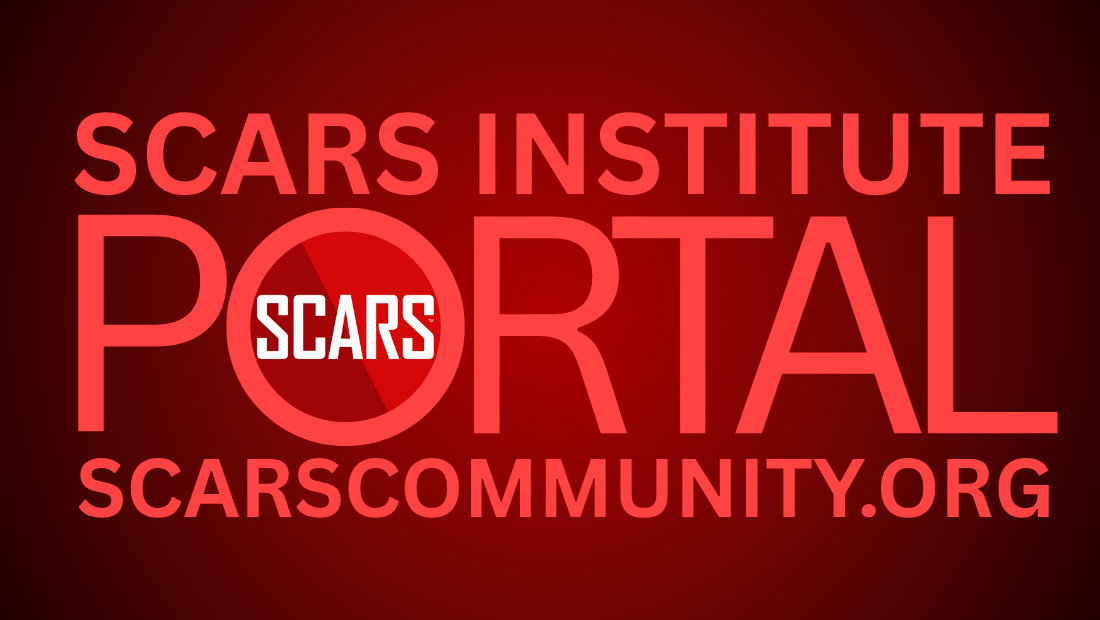


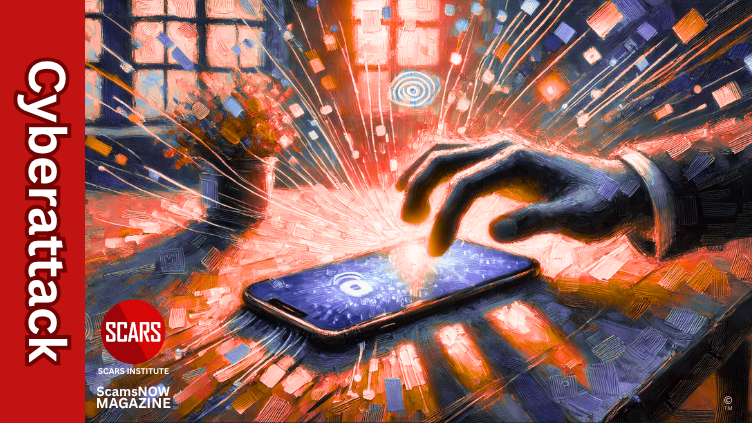


![NavyLogo@4x-81[1] The Tragic Story Of Laura Kowal - A Romance Scam Victim Who Died Possibly At The Hands Of The Ghana/Nigerian Scammers - 2024 - [Videos]](https://scamsnow.com/wp-content/uploads/2025/04/NavyLogo@4x-811.png)
![The Tragic Story Of Laura Kowal - A Romance Scam Victim Who Died Possibly At The Hands Of The Ghana/Nigerian Scammers - 2024 - [Videos] 19 Valentine's Day for Scam Survivors - A Quick Survival Guide - 2026 - on SCARS Institute ScamsNOW.com - The Magazine of Scams, Scam Victims, and Scam Psychology](https://scamsnow.com/wp-content/uploads/2026/02/Valentines-Day-Quick-Survival-Guide-700x423.png)
![The Tragic Story Of Laura Kowal - A Romance Scam Victim Who Died Possibly At The Hands Of The Ghana/Nigerian Scammers - 2024 - [Videos] 20 The Language You Use Programs Your Mind and Defines Your Recovery - 2026 - on SCARS Institute ScamsNOW.com - The Magazine of Scams, Scam Victims, and Scam Psychology](https://scamsnow.com/wp-content/uploads/2026/02/Language-Defines-Your-Thinking-Recovery-700x423.png)
![The Tragic Story Of Laura Kowal - A Romance Scam Victim Who Died Possibly At The Hands Of The Ghana/Nigerian Scammers - 2024 - [Videos] 21 SCARS Institute Foundational Knowledge](https://scamsnow.com/wp-content/uploads/2025/04/Foundational-Scam-Victim-Recovery-Knowledge-2025-700x423.png)
![The Tragic Story Of Laura Kowal - A Romance Scam Victim Who Died Possibly At The Hands Of The Ghana/Nigerian Scammers - 2024 - [Videos] 22 Trauma and a Broken Sense of Time Make Recovery Difficult - 2026 - on SCARS Institute ScamsNOW.com - The Magazine of Scams, Scam Victims, and Scam Psychology](https://scamsnow.com/wp-content/uploads/2026/02/Trauma-Broken-Time-700x423.png)
![The Tragic Story Of Laura Kowal - A Romance Scam Victim Who Died Possibly At The Hands Of The Ghana/Nigerian Scammers - 2024 - [Videos] 23 What Happened to Your Fun and Joy? Losing Joy, Fun, Playfulness, and Bliss: Relearning How to Feel Alive After Trauma - 2026 - on SCARS Institute ScamsNOW.com - The Magazine of Scams, Scam Victims, and Scam Psychology](https://scamsnow.com/wp-content/uploads/2026/02/What-Happened-to-Your-Fun-and-Joy-700x423.png)
![The Tragic Story Of Laura Kowal - A Romance Scam Victim Who Died Possibly At The Hands Of The Ghana/Nigerian Scammers - 2024 - [Videos] 24 The Difference Between Toxic Guilt and Healthy Guilt -2026 - on SCARS Institute ScamsNOW.com - The Magazine of Scams, Scam Victims, and Scam Psychology](https://scamsnow.com/wp-content/uploads/2026/02/Shifting-Toxic-Guilt-into-Healthy-Guilt-700x423.png)
![The Tragic Story Of Laura Kowal - A Romance Scam Victim Who Died Possibly At The Hands Of The Ghana/Nigerian Scammers - 2024 - [Videos] 25 Denial Resisting or Avoiding Recovery After Scam Victimization Comes with a High Cost - 2026 - on SCARS Institute ScamsNOW.com - The Magazine of Scams, Scam Victims, and Scam Psychology](https://scamsnow.com/wp-content/uploads/2026/02/Denial-Resisting-or-Avoiding-Recovery-1-700x423.png)
![The Tragic Story Of Laura Kowal - A Romance Scam Victim Who Died Possibly At The Hands Of The Ghana/Nigerian Scammers - 2024 - [Videos] 27 How the Brain Protects False Certainty and Why Deception Feels Reasonable - 2026 - on SCARS Institute ScamsNOW.com - The Magazine of Scams, Scam Victims, and Scam Psychology](https://scamsnow.com/wp-content/uploads/2026/02/Why-Deception-Feels-Reasonable-1-700x423.png)
![The Tragic Story Of Laura Kowal - A Romance Scam Victim Who Died Possibly At The Hands Of The Ghana/Nigerian Scammers - 2024 - [Videos] 28 How the Brain Protects False Certainty and Why Deception Feels Reasonable - 2026 - on SCARS Institute ScamsNOW.com - The Magazine of Scams, Scam Victims, and Scam Psychology](https://scamsnow.com/wp-content/uploads/2026/02/Why-Deception-Feels-Reasonable-2-700x423.png)
![The Tragic Story Of Laura Kowal - A Romance Scam Victim Who Died Possibly At The Hands Of The Ghana/Nigerian Scammers - 2024 - [Videos] 30 Learning to Learn Again After the Trauma - 2026 - on SCARS Institute ScamsNOW.com - The Magazine of Scams, Scam Victims, and Scam Psychology](https://scamsnow.com/wp-content/uploads/2026/02/Learning-to-Learn-Again-700x423.png)
![scars-institute[1] The Tragic Story Of Laura Kowal - A Romance Scam Victim Who Died Possibly At The Hands Of The Ghana/Nigerian Scammers - 2024 - [Videos]](https://scamsnow.com/wp-content/uploads/2025/04/scars-institute1.png)
![The Tragic Story Of Laura Kowal - A Romance Scam Victim Who Died Possibly At The Hands Of The Ghana/Nigerian Scammers - 2024 - [Videos] 31 SCARS Institute ScamsNOW Magazine](https://scamsnow.com/wp-content/uploads/2026/01/ScamsNOW-Magazine-1500-x-375-px-1024x256.png)
![niprc1.png1_-150×1501-1[1] The Tragic Story Of Laura Kowal - A Romance Scam Victim Who Died Possibly At The Hands Of The Ghana/Nigerian Scammers - 2024 - [Videos]](https://scamsnow.com/wp-content/uploads/2025/04/niprc1.png1_-150x1501-11.webp)
This is the sad story of all of us, victims of a romance scam. We only wanted to be loved, but in return we were manipulated, financially exploited and deceived. Luckily, some of us were able to still be alive and to recover from the trauma. It is my belief that we have a responsibility to share our stories to save other women.
Thank you for your comment. Yes, this could be any romance scam victim.